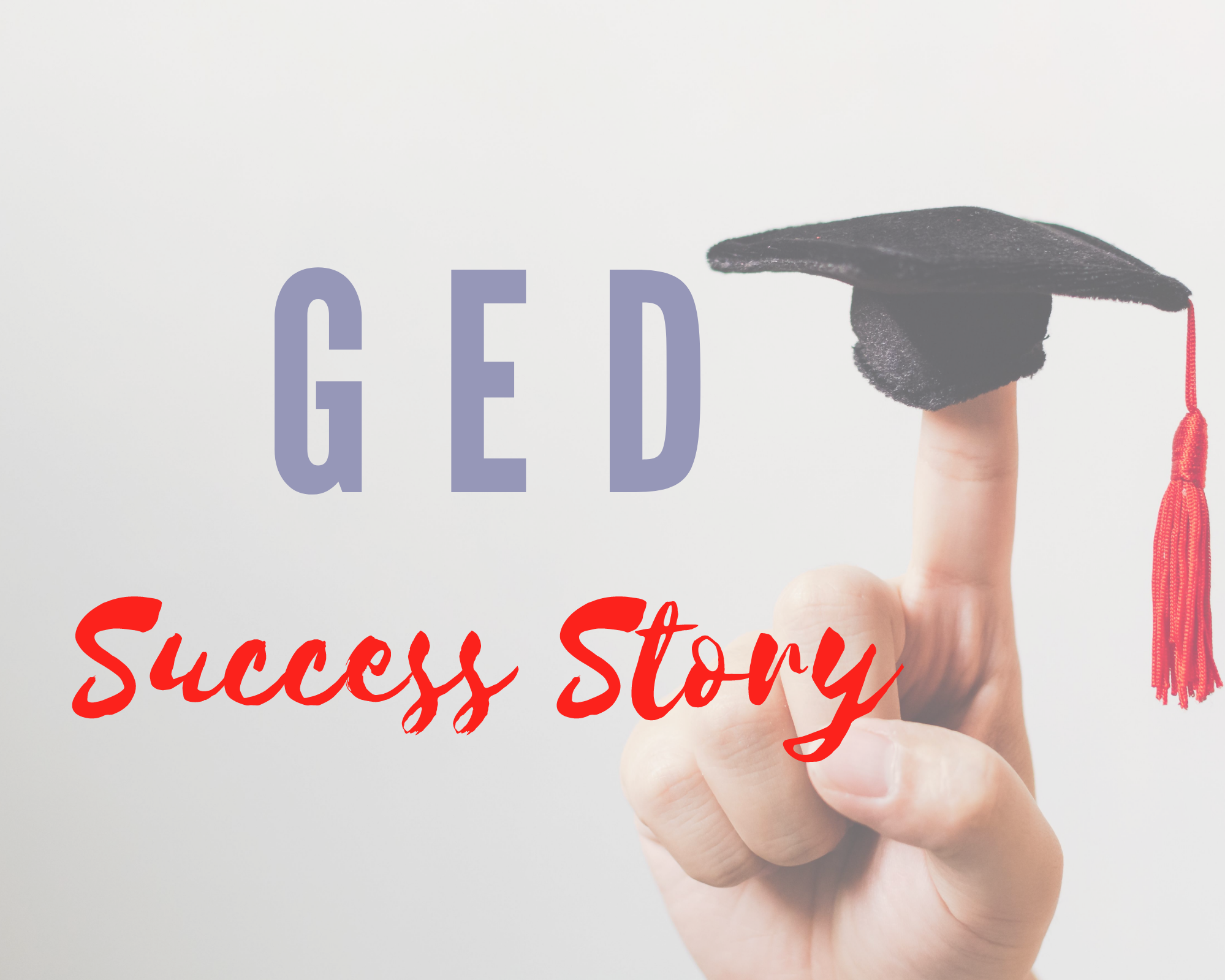GED Success Story
I’m a GED success story. I’m 35, and it honestly took me until this year to be able to say it with confidence and without shame. I know that’s a luxury that comes with the success itself, and age… And if I’m being completely honest, I know my confidence in stating that I’m a success story also comes with some privilege. I am white, American, and although my parents had me at 18 and were’t middle-class for the majority of my childhood, they worked their way there and are now successful. Thinking about it more, the privilege exists generationally, even if earned and deserved.
I want to be clear. I earned my achievements and my parents earned their success too. I just think we all need to be aware that the abilities to achieve and reach success by merely putting in the hard work… well, that’s not an advantage everyone has.
I actually wrote a whole prior blog piece and corresponding podcast episode on my GED success story titled Bachelor’s Degree Required; My Story From GED to Microsoft and Google. The reason I’m following up to that piece is because the #BLM movement has altered my perspective, and I don’t think I addressed my advantages enough in my article. I did drop a line where I referenced that I’m privileged. I felt that #BLM was important enough to not be blended in with my story. The idea that my achievements were easier because of the demographic I fall under isn’t lost on me. I’m thinking about every one of you that doesn’t have my advantages and it weighs heavy on my heart. Yes, I am doing things to try to help fix this gap.
I also want to be clear that I don’t have guilt for my success. I believe the best thing we can do to help elevate our communities is to bring awareness to issues and to participate in helping advance other’s that have less advantages than we do. Because of that, I encourage everyone to help Niani Tolbert in her #HireBlack initiative to get 10,000 black women trained, hired, and promoted. Niani and I did a podcast episode together and you can find that here. If you’re a Recruiter, HR professional, hiring manager, or simply have the ability to forward onto someone who is, you can help.
Consider this blog piece one of my midnight diary-entries that I’m open to sharing with the world, so if it seems all-over the place, it’s from a place of passion… and as my Mom would say “I’m deliriously tired”.
Now that we’ve cleared that up… I must also direct you to another amazing GED success story that I recently came across. I interviewed Emily Strauss on her adventure being on The Shark Tank and pitching to the sharks. Emily ended up taking an offer from Barbara Corcoran to invest in her business, Mural Painter. You can view the details on our episode here. Emily suffered from lyme disease as a teenager and subsequently, ended up obtaining her GED as she couldn’t finish High School. Her story from surviving lyme disease to building a business, pitching on The Shark Tank, and obtaining a business partner and investor like Barbara Corcoran… It’s very impressive.
There are two main themes to my midnight rant… (1) Don’t judge people’s abilities by their education. Yes, doctors need medical degrees. Researchers and scientists often need formal education. Even then, I’ve sat in so many rooms where people have judged GPAs on resumes, the actual colleges people have attended, or the fact that someone has a Masters Degree instead of a PhD. Look at the other content first. Look at someone’s capabilities. I now have the confidence in my GED success story to say that I don’t want to work for an employer that thinks less of me because of my lack of formal education. I’ve outlined a whole story explaining why I don’t have a BA/BS and I think it’s compelling. I’ve also traveled to over 50 countries, sang in a band that had mild success, and had other adventures where I learned different lessons. I wouldn’t trade a single one of my experiences. Yes, formal education is amazing and the path for most. Our educational system doesn’t make it accessible to everyone though. Until we make changes to that, we need to keep our eyes open to talent that can bring different perspectives to the table. Sometimes, having less makes people work harder for more too.
(2) If you’re fortunate enough to have the scrappy spirit to have made it against the odds, pay it forward. Mentor, connect your HR with organizations that can help provide a diverse environment and help elevate our communities. Be confident in your story, and share it to inspire others.



